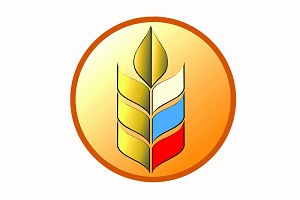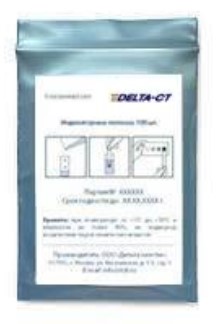Potato issue does not lose relevance

The heads of potato-growing enterprises of the Chelyabinsk region again gathered at the Yuzhnouralsk Research Institute of Horticulture and Potato Growing (a branch of the Urfa Scientific Research Center of the Ural Branch of the Russian Academy of Sciences) to discuss new selections and outline plans for the next year. First, we discussed the situation in our industry at a meeting at the institute, then examined the planting of promising potato varieties and specialized potato growing equipment in the experimental fields of YuUNIISK.
A seminar on studying the best practices in growing potatoes was organized by the Ministry of Agriculture of the Chelyabinsk region. Opening the plenary part of the event, Alexander Zavalishchin, First Deputy Minister of Agriculture of the Chelyabinsk Region, noted that the potato industry in the region is very well organized from a technical and technological point of view.
- Potato growers were the first to carry out technical re-equipment, therefore, in any year, at least 100 thousand tons of potatoes and 30 thousand tons of open ground vegetables are produced in agricultural enterprises, - said the First Deputy Minister. “It is very good that the Institute of Potato Growing works not only with farmers and agricultural organizations that produce potatoes, but also with personal subsidiary plots of citizens: there is a demand, and people buy seeds. And our task is to expand the area of industrial plantings using the varieties of our institute.
The purchase of elite potato seeds, which allows regular renewal of varieties, is subsidized by the state. Anna Gubina, Head of the Department for the Development of Crop Production and Small Business Forms of the Ministry of Agriculture of the Chelyabinsk Region, told the participants about the types of state support for enterprises in the industry. Today, support for the crop industry is carried out in 13 areas. Potato farms receive unrelated support - this is a compensatory subsidy per hectare of cultivated area, as well as incentive subsidies, which provide support for the purchase of seeds and plant protection products. In addition, there are targeted subsidies - for the purchase of mineral fertilizers, the cost of agrochemical soil survey is subsidized.
In 2022, the approach to providing subsidies for reclamation will change: these are measures for liming acidic soils, cultural and technical measures - the return of arable land to circulation, as well as the construction and modernization of reclamation systems. Subsidies will be provided directly by the Ministry of Agriculture of Russia, up to 50% of the cost of land reclamation will be reimbursed. The regional ministry has already sent a package of documents provided by the farms to Moscow, the selection of recipients will be in August, and additional selection is also planned.
Today, the state register of breeding achievements approved for use in the ninth agro-climatic region, which includes the Chelyabinsk region, contains 60 varieties of potatoes, of which six varieties were created at the Yuzhnouralsk Research Institute of Horticulture and Potato Growing, including such as Spiridon, Kuzovok "," Tarasov.
“In total, there were 30 varieties of our developments in the state register in different years. In 2021, the potato variety “Kashtak” was entered into the state register, last year two varieties were introduced - “zakhar” and “cavalier”. Today, two of our varieties are being tested, and this year we are also submitting two new developments for variety testing, ”said Nikolai Glaz, director of YuUNIISK.
A feature of 2021 was the lack of moisture in the fertile soil layer, however, in such difficult weather conditions, potato growers are saved by the advanced Dutch potato cultivation technology, which is aimed at creating favorable conditions for the development of the potato root system, and hence for obtaining a good harvest of tubers. This technology was introduced in the South Ural enterprises more than twenty years ago and allows you to get a normal harvest in any year, said Lidia Smirnova, Chief Agronomist of the Association of Vegetable and Potato Growers of the Chelyabinsk Region, Honored Agronomist of the Russian Federation.
“The institute is doing the right thing when it encourages private farms and the population of the region to purchase seeds of high-yielding potatoes,” Lidia Smirnova believes, “this will expand the area of potato plantations in the whole region.”
Ksenia Vanina, head of the Chelyabinsk branch of Rosselkhoztsentr, spoke about the state of potato plantings and measures to combat pests. According to her, in 2021, South Ural potato growing enterprises purchased 21,000 tons of seed potatoes of 33 varieties for planting potatoes. The share of varietal seeds in the structure of plantings was 33%, of which a fifth was domestic selection. In the structure of plantings, the varieties "Rozara" are in the lead - 60%, its volume has increased markedly (in 2020 it was 40%), and the variety "Nevsky" - 19% .
In the practical part of the seminar, its participants went to the field, where scientists from the Institute of Horticulture and Potato Growing spoke about promising varieties of potatoes on demonstration plots. An exposition of agricultural machinery was organized on the field - machines for planting and harvesting potatoes: both impressive combines for processing large areas, and small units for farmers and private households, for example, the development of Professor Ravkat Latypov from the South Ural State Agrarian University - a compact potato digger. In general, two Chelyabinsk universities, the Yuzhnouralsk Research Institute of Horticulture and Potato Growing and South Ural State Agrarian University, are strengthening ties both in the field of science and in terms of student practice, said Svetlana Cherepukhina, Rector of the Agricultural University.
Press Center of the Ministry of Agriculture of the Chelyabinsk Region



























































